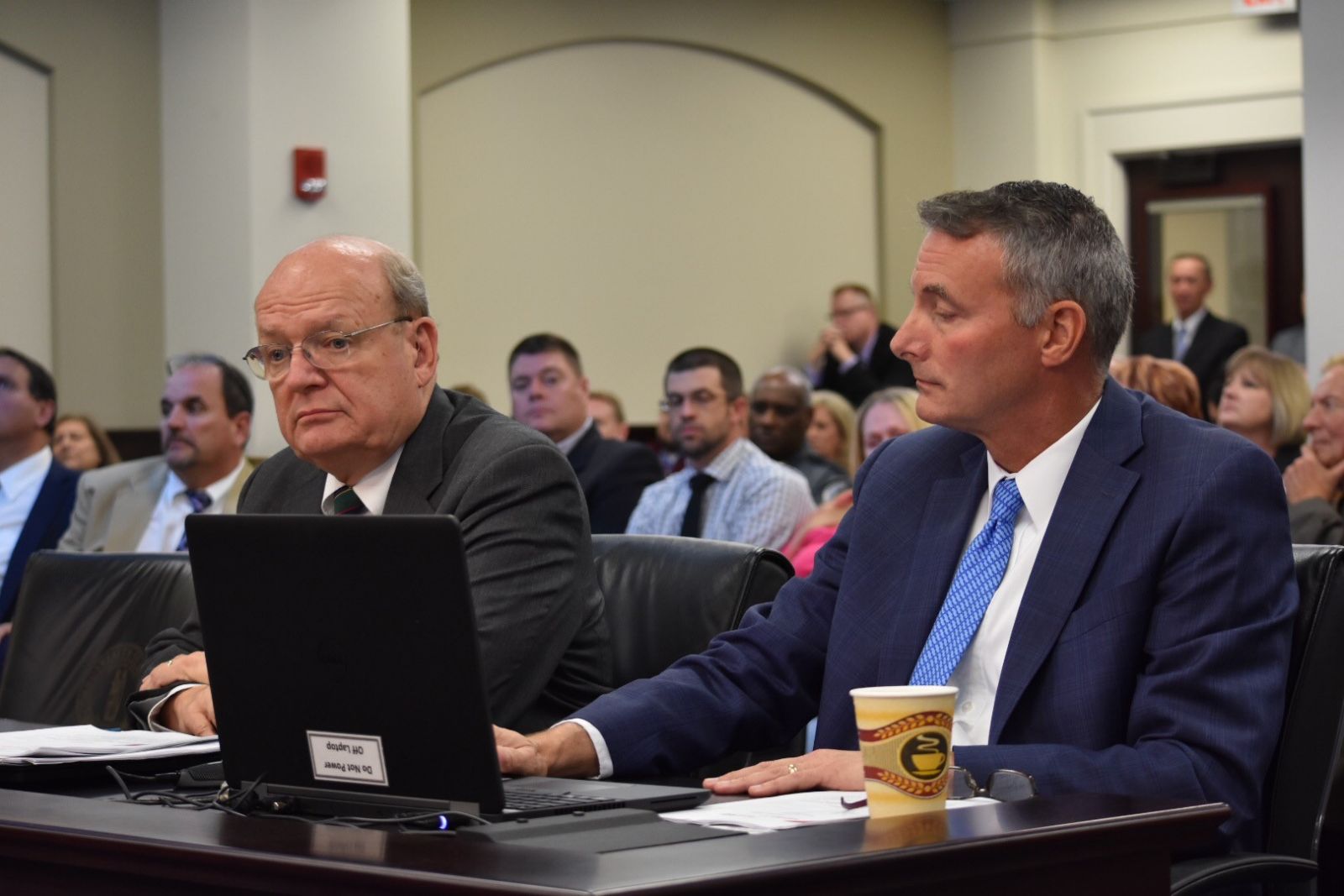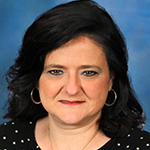State Budget Director Testifies CERS Employers Funded Above ARC
 Legislators are continuing to work on the details of the pension reform bill released in draft form last week. Thursday afternoon members of the Public Pension Oversight Board (PPOB) heard from State Budget Director John Chilton about the technical aspects of the proposed bill and how it would impact the various plans. He testified for two hours before lawmakers and an audience that spilled into two overflow rooms.
Legislators are continuing to work on the details of the pension reform bill released in draft form last week. Thursday afternoon members of the Public Pension Oversight Board (PPOB) heard from State Budget Director John Chilton about the technical aspects of the proposed bill and how it would impact the various plans. He testified for two hours before lawmakers and an audience that spilled into two overflow rooms.
Committee chairman Senator Joe Bowen (R-Owensboro) started the meeting by reminding Board members the hearing was not a forum for political statements and that the bill draft was not yet an official bill. Several legislators questioned various aspects of the draft’s requirements and restrictions. After the meeting, Representative Brian Linder (R-Dry Ridge) told reporters, “The votes are not here for this bill, and so I think what we’ve got to do is get to that point.” Linder said Republicans are working to reach a compromise. “I would like to find out from members of our caucus: what are the issues, what can be tweaked, what can be changed and how many votes do we pick up as we do that?”
Chilton tried to answer some of those questions and concerns with his presentation. He shared a lot of details from previous presentations from The PFM Group, a firm hired by the state at Governor Bevin’s request to study the state’s pension systems. The PFM Group presented a controversial report on recommended pension reforms in August. In Thursday’s testimony, Chilton reiterated the funding crisis he says the state’s pension systems face and warned, “It’s going to take a very long period of time to work out of it.”
How the pension systems fell into such a bad funding level was also touched on in Chilton’s testimony. He told legislators bad investment returns were responsible for 23 percent of the problem, 15 percent was due to the state not funding the actuarially required contribution (ARC) and 62 percent was attributed to structural issues with the pension plans. He pointed out that the local governments that fund the County Employees Retirement System (CERS) ARC contributed more than was required. The overfunding for CERS during an 11-year period amounted to $353 million. Chilton says that still wasn’t enough. “The other structural issues overcame that overfunding, and there’s still significant underfunding for those plans,” noted Chilton. “We know the CERS plans have paid the money going in, paid the ARC that was requested, but the ARC that was requested wasn’t a realistic ARC that would reduce the amounts of the unfunded debt.”
The mismanagement of local tax dollars in CERS is one of the main reasons the Kentucky League of Cities and 24 other employer and employee groups believe separation is the best path forward. The Kentucky Retirement Systems (KRS) Board of Trustees made investment and structural decisions for CERS, which Chilton testified led to its underfunding. “The state dictates CERS benefits, asset allocations, investments and assumption rates,” pointed out KLC Director of Governmental Affairs Bryanna Carroll. “They are all under state control and the reason CERS is not 100 percent funded. All we can do is pay the bill.” She also refers to reforms passed in 2013 that addressed structural concerns. “Those reforms stopped the digging for CERS and put it on an upward trajectory,” observed Carroll.
CERS only has six of the 17 members on the KRS Board, or 35 percent, and until recently had no representatives on the KRS Investment Committee. The pension bill draft would only dilute CERS representation more by adding two additional members to the KRS Board, bringing CERS representation down to 32 percent. CERS accounts for 63 percent of KRS membership and 73 percent of its assets. In July, the KRS Board changed assumption rates for CERS, increasing the unfunded liability and contribution rates. The Board dropped the CERS rate of return from 7.5 percent to 6.25 percent. At Thursday’s hearing, Mark Bunning, deputy secretary of the Finance and Administration Cabinet, made a case for using a 7.5 percent rate assumption in computing possible returns for the proposed defined contribution plans. “If you look at the plans that are in the deferred comp plan, most of the plans, depending on your level of risk, have returned 7.5 percent,” Bunning told members of the Public Pension Oversight Board. “The ones that would be the default return in the bill have all been at this rate of return. I don’t think it’s unfair to look at a 7.5 percent return as it relates to investment accounts.”
Several legislators at Thursday’s PPOB meeting questioned various aspects of the bill draft including the 3 percent additional contribution requirement from employee salaries to fund the retiree healthcare program. Others wondered how unused sick and compensatory time will be calculated. There were also several inquiries about restrictions on retirees being rehired full-time into a public position. The bill draft would cause a retiree’s pension to be suspended if rehired, and both the employee and employer would have to contribute into the pension system when the retiree was rehired. Auditor of Public Accounts Mike Harmon suggested the time a retiree is required to wait before being rehired might need to be suspended, if their pension is also going to be put on hold.
Senator Bowen had to remind legislators on at least two occasions that Chilton was only there to discuss the technicalities of the bill and not the philosophy behind components in the bill. Bowen also had to chastise the audience at one point for being vocal during some question-and-answer portions. “This is not an audience participation exercise today,” he reminded members of the public. “If this bill draft, in fact, becomes a bill, is filed, does have a sponsor and is introduced in session, then there will be committee hearings, debate on the floor and opportunities for all these questions to come forward,” promised Bowen.
After the Board meeting, he told reporters legislators are working hard to get the draft in bill form. “We want the bill to be defined as much as possible so we don’t languish here in Frankfort for an extended period,” he said. “There’s still some moving parts, so when the governor is comfortable with the draft itself, and the dynamics involved, he’ll push the button and call a session.” None of the legislators on the Public Pension Oversight Board could provide any opinion on when the governor might make the call. Members of the House Republican Caucus are meeting again on Friday to iron out more details in the bill draft.
In the meantime, Chilton testified Thursday that state actuaries are still analyzing the draft. “We expect to get them really soon,” he promised. The Kentucky League of Cities also has an actuary analyzing the draft. As soon as that report is completed it will be provided to the KLC Board of Directors for consideration. Chilton says the state’s actuarial analysis will be presented to legislators as soon as its available.


